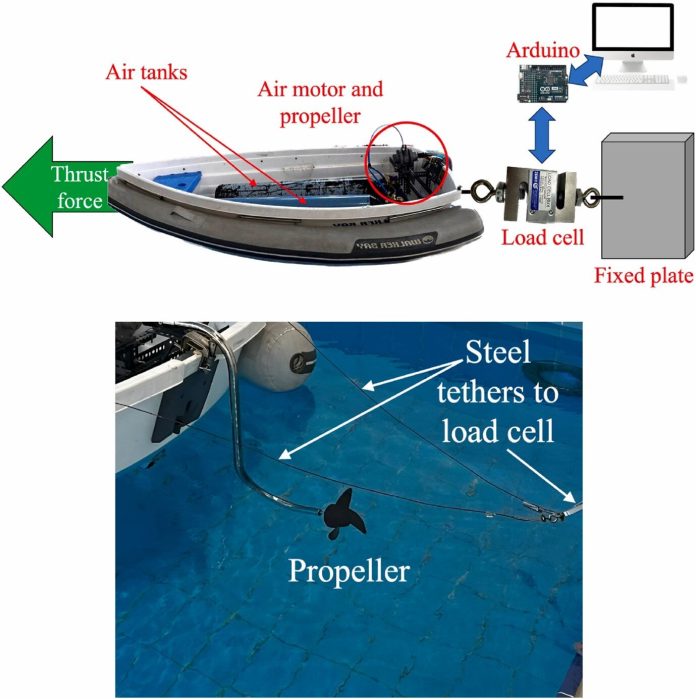
A team of scientists from the University of Sharjah has developed a new air-powered propeller system that could replace the traditional diesel and electric engines currently used in ferries.
This innovative technology is not only more energy-efficient but also better for the environment, offering a cleaner and quieter alternative to conventional ferry engines.
Led by Professor Abdul Hai Alami, a professor of Sustainable and Renewable Energy Engineering, the team believes that their pneumatic propulsion system is more cost-effective and energy-efficient than current methods.
Instead of using diesel fuel or electricity, the system uses compressed air stored in onboard tanks to power an air motor that drives the propeller.
These tanks can easily be refilled at the end of a trip while passengers are boarding or disembarking, making it a practical and sustainable solution for ferries.
The researchers highlight the many environmental benefits of their system.
By using compressed air, the ferry eliminates harmful emissions, reduces water pollution caused by fuel and engine oils, and cuts down on noise pollution, making it an eco-friendly alternative.
This is a significant improvement, particularly for areas with heavy ferry traffic, such as the United Arab Emirates (UAE), where ferries play a major role in transportation and tourism.
The team’s research, published in the journal Ocean Engineering, involved testing the pneumatic propeller on the UAE’s traditional ferryboats, known as Abras.
These boats, which transport passengers and cargo, are an essential part of the region’s maritime culture.
The results showed that the air-powered propeller delivered 6% more propulsion force than electric motors, while also saving 307 kg of CO2 emissions per year compared to electrical systems. This proves that the system is not only more efficient but also significantly reduces its carbon footprint.
Ahmad Yasin, a research assistant at the university, emphasized the benefits of the pneumatic system, including its lower energy requirements, reduced pollution, and quieter operation. The life-cycle assessment also showed that the materials used in the pneumatic system have a far smaller environmental impact compared to electric propulsion systems.
Co-author Maitha Almheiri, a student in the Sustainable and Renewable Energy Engineering Department, is confident that this new technology will eventually be adopted to power ferries on pre-determined routes, replacing diesel and electric engines.
Professor Alami explained that the team’s goal is to prove that pneumatic propulsion is a practical solution for ferry transportation.
The system is particularly well-suited for ferries that follow fixed routes, where compressed air tanks can be easily recharged during passenger stops. Unlike electric systems, which require long recharging times, the pneumatic system offers rapid refueling, similar to refilling a diesel tank.
The team is now working with local authorities in the UAE, including Dubai’s Road and Transportation Authority and the Sharjah Water Sports Club, to industrialize their project and bring this innovative technology to the region’s ferry systems.
Source: University of Sharjah.



